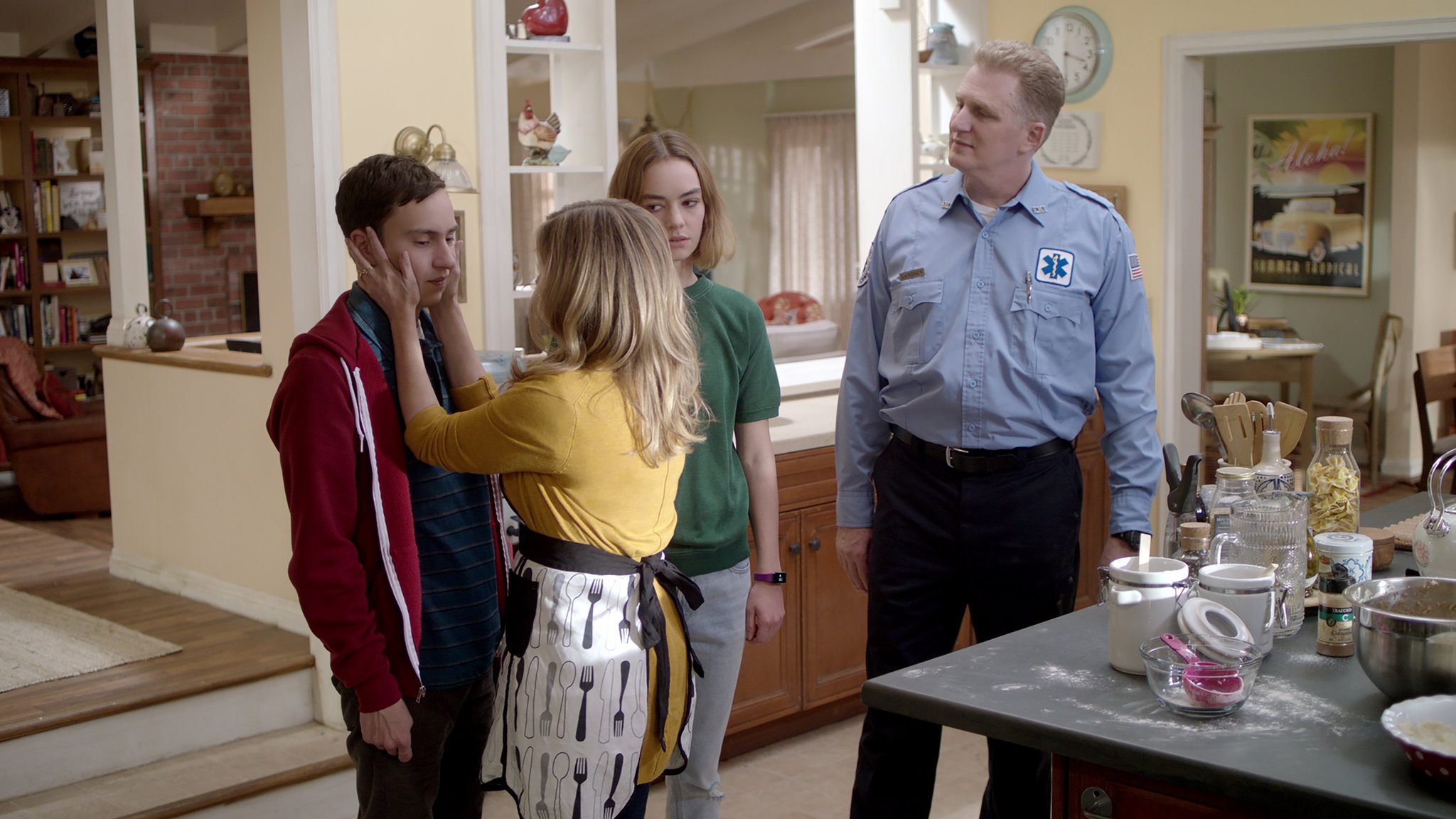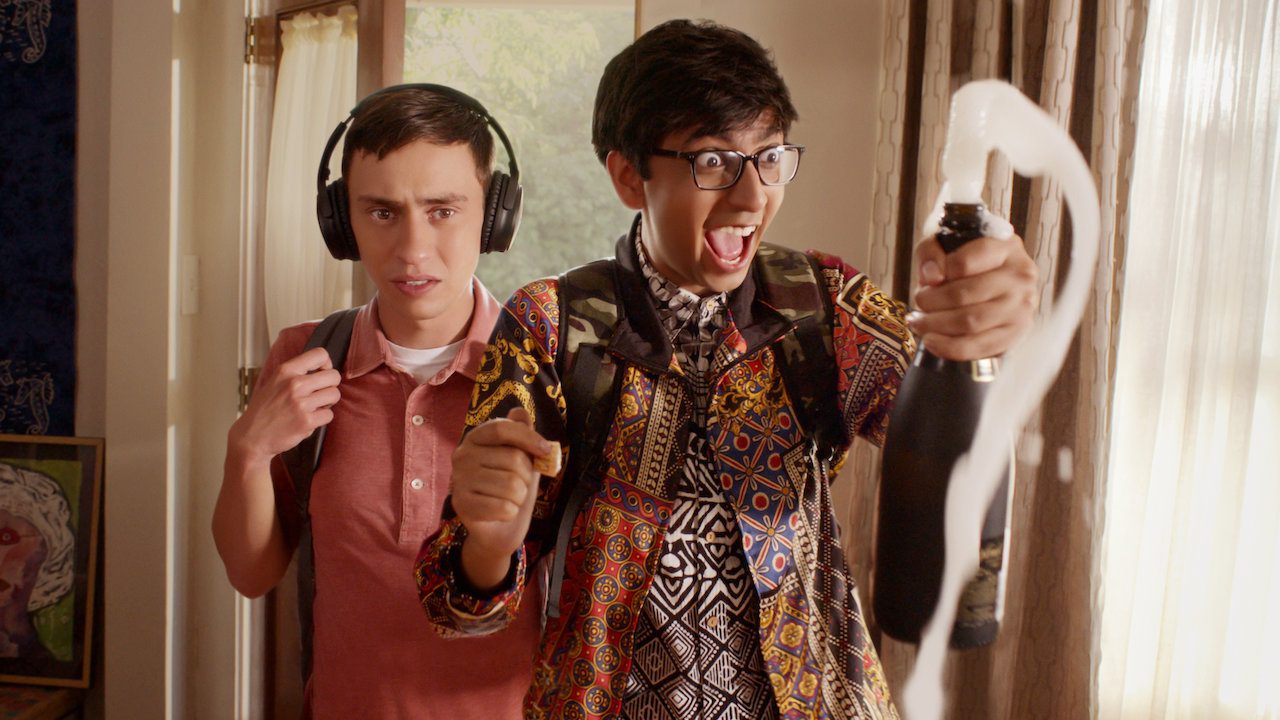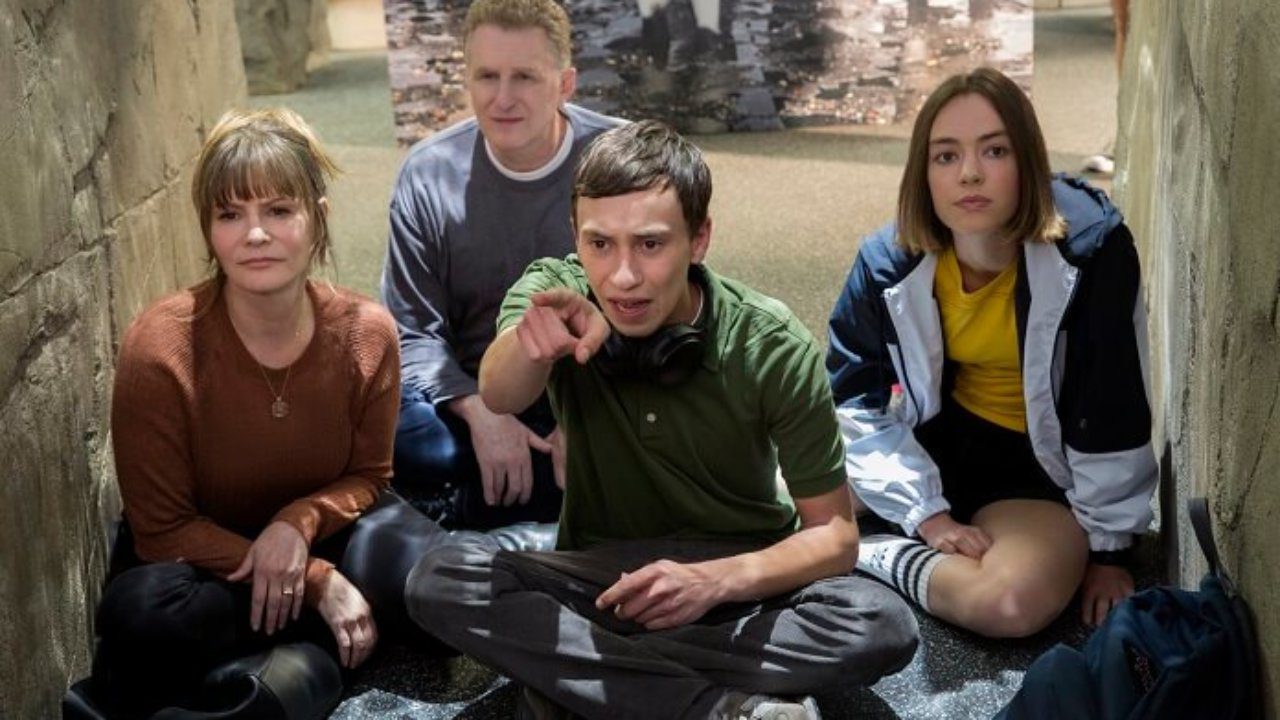Netflix’s Atypical Lives Up to its Name
Atypical is a Netflix dramedy that ran from 2017 to 2021. It follows the Gardners, a mostly average American family with an autistic son. Different people recommended this show to me several times, but I don’t like family dramas or sitcoms. In my experience, characters with autism (not that there are many) aren’t usually relatable in the way they’re intended to be. I’ve found numerous characters to identify with in fiction, but ones with disorders like mine usually weren’t the ones for me. A story’s characters are what make or break it for me, and for whatever reason, these aren’t the type of shows where I usually find ones I connect with. However, all of the Gardners are sympathetic and understandable, as well as some of their friends. Now that I’ve seen Atypical in its entirety, I thought it would be interesting to talk about something so different. Let’s take a look.
Sam Gardner (Keir Gilchrist) is a high school student dealing with the usual school bullies and family problems. The only difference is, Sam has autism spectrum disorder (ASD), which comes with its own specific set of challenges. Meanwhile, Sam’s sister Casey (Brigette Lundy-Paine) must navigate the treacherous world of identity and relationships. As Sam and Casey become more independent and self-actualized, their mother Elsa (Jennifer Jason Leigh) feels like she’s not needed anymore. In her pursuit of purpose and fulfillment, she makes a mistake that threatens the family unit.
*SPOILERS*
They did a fabulous job casting the Gardner family in Atypical. They all really look like a family; Sam and Casey especially bear a resemblance, and Sam looks a lot like his dad Doug from the front. But physical appearance is only part of the job, and the actors bring the family to life in a believable way too. Sam and Casey realistically switch from torturing each other to being supportive. Casey’s snipes at Elsa feel very true to the contentious relationships many teenage girls have with their moms. Doug loves his family but often doesn’t know how to show it. This stands in stark contrast to Elsa, who frequently oversteps boundaries and overwhelms the people she wants to help. When I first started Atypical, I couldn’t stand Elsa. She’s well-meaning, but babies Sam, neglects Doug, and just generally annoys Casey. When Elsa initiates an extramarital affair early into season 1, she starts the ball rolling on her character development, as well as Doug’s and much of what the family will grapple with for the rest of the show. Like most people, I hate infidelity and cheaters. When characters on TV do this, it infuriates me, including when it’s intended to be sympathetic, i.e., The Notebook or Titanic. That actually annoys me even more because of how tone-deaf the writers are in trying to get the audience to root for someone who is duplicitous and unfaithful. Atypical doesn’t do that at all with Elsa. Both the show and the character herself are well aware of how wrong her behavior is. It’s beyond frustrating to watch; within the show’s first two episodes, she rejects advances from her own husband and instead opts for a fling with a bartender (Raúl Castillo).

The fallout of this crappy decision is pretty realistic, too. The other characters hold Elsa accountable for her choices, and she spends much of the show trying to make amends. The damage she does to her marriage and family isn’t quickly set aside or forgotten. In addition to the disgust and betrayal Doug feels, the revelation also fractures Elsa’s already-precarious relationship with Casey. One of Atypical’s greatest strengths is that it never becomes a treatise on autism. It’s more interesting and complicated than that, following each family member’s problems and relationships in a unique way. The least obvious one is Doug because he doesn’t have a big lesson to learn or challenge to overcome from the beginning. Most of Doug’s problems stem from the distance between him and Elsa and, by extension, the choices she makes because of that.
One of my favorite scenes in the entire show comes in season 3. Elsa suggests a separation after a considerable amount of time and effort on her part. Since she had her affair, she has tried to be more open, honest, and affectionate with Doug. Elsa makes a huge error of judgment early into the show but spends the rest of it trying to make things right. But after Doug takes another woman to see Fleetwood Mac (their favorite band and previously a couple thing for them), Elsa has had enough. She realizes she probably can’t do anything to make amends at this point. Doug takes offense to this, not wanting the marriage to end despite his words and behavior to the contrary. I love the exchange of dialogue when Doug confides in his friend and coworker Chuck. Doug doesn’t think it’s fair for Elsa to propose a separation. If she’s the one who messed up, why should she leave him? But Chuck replies that marriage is a choice you have to make every day. Ever since Doug found out what happened, he hasn’t been making that choice, but he still expects Elsa to stick around until he decides he wants to again.

Chuck is an excellent example of the show’s great side characters and how they play into the main character’s stories. Chuck is Doug’s best friend and, outside of the family, the person he opens up to the most throughout the show. Early on, there’s a point about how Doug never told Chuck about Sam’s autism. By the third season, he’s willing and able to go to his friend for marital advice. This is a change that goes unstated but not unnoticed. Elsa’s circle outside of the family primarily consists of her autism support group. There, she, her friend Luisa, and other moms share the struggles and achievements of their autistic kids and sometimes other family stuff. Casey has her best friend Sharice, who is pretty much unbearable. She’s petty and vindictive, never really supporting Casey until almost the end. Near the show’s beginning, Casey has a boyfriend named Evan (Graham Rogers), who is quite possibly the show’s most lovable character. He’s funny but not mean, friendly in a sincere way. Unfortunately, though, as the show progresses, Casey breaks up with Evan to go out with a demonic force known as Izzie (Fivel Stewart). This is part of Casey’s path of self-discovery as she comes out as bisexual. I have no problem with that; quite the contrary, actually. But I hate Izzie as a person, and it’s difficult for me to imagine why anyone would want to be with her. Evan is so affable and fun compared to Izzie’s constant drama and mood swings. They explore her background and why she behaves this way, but understandable doesn’t mean likable. Strangely, Atypical retroactively reminds me of Arcane in this way. Almost every character’s point of view is very well explored and easy to understand, even if I don’t like them.

Then, of course, you have Sam. Sam’s best friend is his coworker Zahid (Nik Dodani), who also happens to be one of my favorite characters. Zahid is a hilarious ball of chaotic energy brimming with sexual innuendo and terrible advice. This makes him an excellent foil for the introverted, awkward Sam. Sam’s girlfriend Paige (Jenna Boyd) is delightful too. She’s motivated, compassionate, and more than a little quirky. The show never addresses this, but Paige strikes me as autistic herself, or something along those lines. She’s very particular, and her bombastic emotions are familiar to me. She’s remarkably understanding of Sam’s foibles and extremely forgiving of some major relationship faux pas. Throughout the show, another organic development is the widening of Sam’s friend group to include autistic students from his college, among other people. Part of the reason Atypical excels in its portrayal of Sam’s condition is the show’s understanding of Sam as a person first. He’s a complex being who struggles with many of the same things as anyone else at his school. They also get at the heart of the underlying reasons Sam fixates on penguins. A given episode will connect something about penguins to something in Sam’s life. For example, early on, they contrast penguins mating for life with Elsa’s betrayal of her matrimonial commitments. Penguins represent community for Sam, and he sees his own struggles in the things the birds overcome every day in the wild. This is exactly right, and what people often don’t catch with these obsessive hobbies, in my opinion. It’s not just that thing itself; it’s what it means to the individual. You very well might be drawn to penguins initially because they’re beautiful but come to admire their resilience and the tight bonds they form. The same can be applied to any area of interest for an autistic person or anybody. With Sam, the writers get very specific rather than making generalizations. Although one might think this would make him relatable for a smaller group of people, the opposite is actually true. A viewer may not be able to recite statistics and facts about penguins. Still, the general idea is very familiar to people like me who experience similar fixations.

Atypical is aptly named because this show is an anomaly. I don’t like family drama or the sitcom format for the most part, but I can’t remember the last time a show made me laugh (and cry) this much. Samand every family member goes through meaningful, realistic growth throughout the four seasons. Elsa went from a character I loved to hate to quite possibly my favorite. Initially, I wasn’t happy with the series finale, but having watched it twice now, it has grown on me. I still have mixed feelings on how some things ended up, but Sam’s final journey and his mom’s support hammer home how much character development truly happened. These characters are remarkably well-realized and believable, and every graduation or reconciliation feels like a monumental achievement. I can’t believe how much I enjoyed Atypical, and I imagine I’ll revisit it often.







